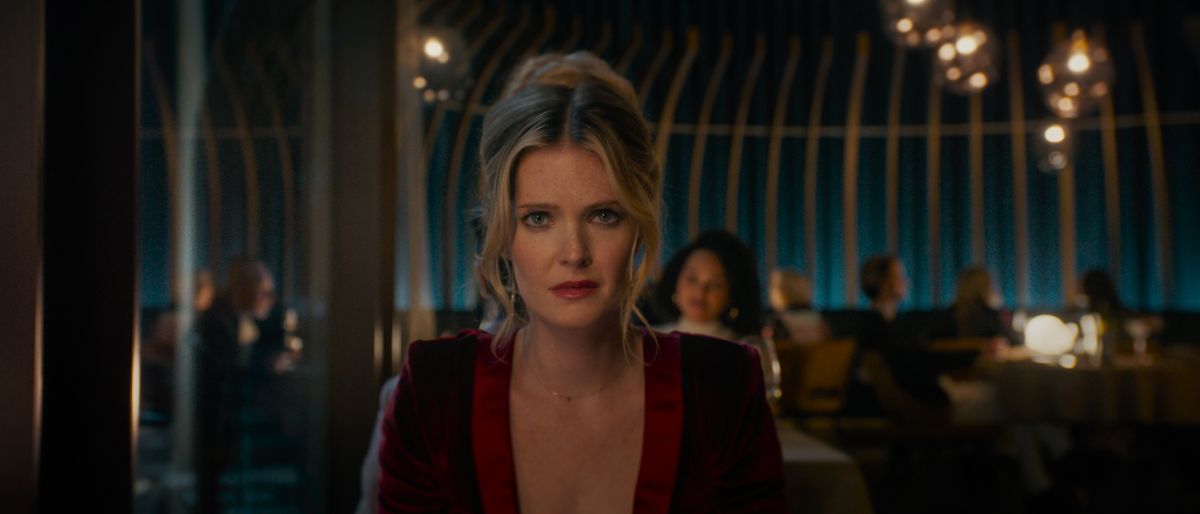
★★★
In A Mouthful of Air, writer/director Amy Koppelman (I Smile Back) adapts her 2003 novel of the same name to tell the story of new mom Julie, (Amanda Seyfried, Mamma Mia!), who unsuccessfully attempts to take her own life shortly before her child’s first birthday; she then strives to cope with negative thoughts and feelings she can’t shake.
Julie is a children’s novelist, and the movie begins with her caring for her infant son Teddy in a Manhattan apartment she shares with her husband Ethan, played by Finn Wittrock (La La Land). After kissing Ethan goodbye in the morning, Julie places Teddy in an exersaucer and, before her sister-in-law Lucy (Jennifer Carpenter) arrives with her kid for a playdate, she sits on her bathroom floor and slices her wrists with an X-acto knife. It’s not immediately obvious that Julie has attempted suicide, just as her reasons for her estrangement from her father (Michael Gaston, Unforgettable) are also unapparent.
Glimpses of a drafting table and what appear to be blueprints suggest that Ethan is an architect, but like nearly every character here, he exists chiefly as a satellite of Julie and her deepening, all-consuming pain. Julie receives guidance and pharmaceutical treatment from an avuncular psychiatrist (Paul Giamatti, Sideways), and her mother (Amy Irving, Carrie) is supportive but very concerned with appearances. She tells Julie of the need for “reset and letting everyone know you’re ok” as if other’s people’s comfort were the main concern.
In her first confrontation with Julie since her suicide attempt, Ethan’s sister Lucy can’t contain her anger and hurt over being the one who, with her own young child in tow, found Julie unconscious and bloody on the bathroom floor. “It’s always about you, Julie,” Lucy says — callously, yes, but also expressing the understandable trauma, frustration, and terror of being shut out of something so devastating even as one is directly affected by it.
Koppleman’s intimate understanding of the shame and suffering that accompany postpartum depression is the saving grace of this debut. Any parent, regardless of mental health status, knows the anxiety that accompanies not feeling like “enough” for their child. Worry and fear that their child(ren) will one day grow to hate them, keeps parents up at night and steals the precious joyful moments from them during the day. Koppleman’s use of animated interludes, a fractured chronology, and an admittedly touchingly haunted performance from Seyfried all serve to portray the message that it’s futile to argue with brain chemistry.
Postpartum health is a largely ignored topic in 21st century society but one that deeply affects large numbers of family each year, often silently and absolutely. If this film does anything for the audience, it speaks up and draws attention to a very important health issue. And perhaps it will either enlighten or inspire those who need help to seek it or support those in their lives who do.
Source


